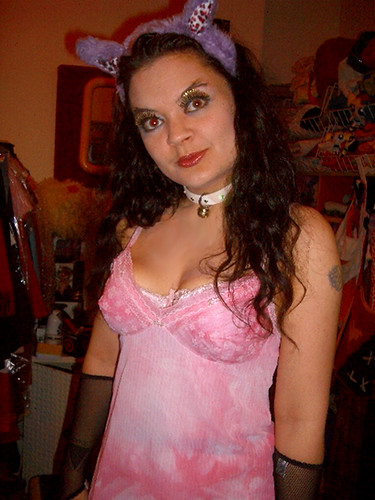I saw the film Milk last week, and I was so moved by it, and thought it was so very good. Harvey Milk was someone that I learned about when I first became interested in queer rights as a teenager, but whom I haven't thought much about for about 15 years. I was reminded how much of the core issues of the (1970s) gay lib movement’s agenda was set by Harvey (and probably others). Many of these agenda items are still vitally relevant to queer causes and communities, as well as other minorities today. I’m going to briefly mention three issues that I was most struck by during the movie
The enormous political value of coming out – although I understand why so many of us will never be able to… particularly many sex workers, who are often parents who risk hideous custody battles and other issues – it does seem clear that knowing someone who identifies as gay or lesbian (in the context of the film, and research that I can’t remember enough to site here, but read many years ago) makes you more likely to support anti-discrimination legislation or same sex relationship legislation. Certainly people in my own life seem to grow in support and passion for sex worker rights issues, than if they’d never known that I was a sex worker. So while I don’t think that you have to be out, I stand by the belief that it’s a useful strategy for increasing awareness, combating stereotypes and increasing support for minorities.
The understanding of the importance of electing openly gay people to office – I think that issue is still own that the sex worker movement battles with. Harvey Milk struggled to get endorsement as a political candidate, in the gay press, who preferred to support str8 candidates who expressed support for gay rights. I think as a movement the sex worker rights movement needs to realise that sex workers are experts in our own lives and work, that when the going gets tough we will still maintain our passion for these issues that impact on our communities. I’m so sick and tired of non-whores being supported for roles in the movement by sex workers, in order to present our issues and organisation with more credibility. Frankly, all of those beliefs emerge from unexamined internalised whore stigma. Before we get another lawyer who understands the letter of the law but not its impacts (or policing), another accountant who is all about sex workers paying tax but doesn’t understand the kind of confidentiality issues that we struggle with at the ATO, another doctor who pays lip service to sex workers as safe sex experts but pushes sexual health testing and sees sex workers as walking genitals, we need to realise that there are many sex workers who have other life and work experiences if we need those qualifications, and that we need to start believing ourselves that we are the experts when it comes to sex work, before we can convince politicians or funders. I see this issue emerge again and again, and not just with the sex worker rights movement, but with most marginalised people. Steps towards self esteem, and regular reality checks by spending time with inspiring folk from your own community can help what unfortunately often just appears to be self hating approval seeking.
The final thing I was struck by in Milk was the power of successfully creating coalitions. Milk worked on making links between union movements and gays – gaining support among the gay community for a union boycott, then got the union support for employing openly gay people. This partnership of support is a really good model for increasing the politicisation for communities and avoiding the divide and conquer approach that minorities can be so seduced by. I think partnerships with clearly defined ideas of how communities can work together to support each other, without stepping on toes are important.

No comments:
Post a Comment